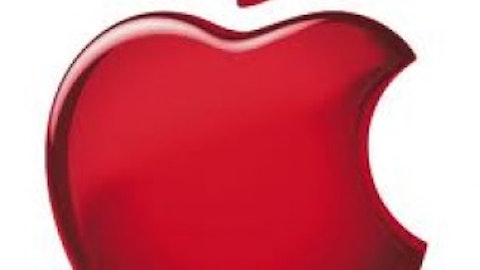Nintendo Co., Ltd (ADR) (NASDAQOTH: NTDOY) has long been one of the chief players and innovators in the videogame industry. The company has been credited with bringing the videogame market back from the verge of complete collapse and maintains one of the most iconic and valuable casts of characters in the medium.

It is my position that Nintendo Co., Ltd (ADR) (NASDAQOTH: NTDOY) stock is currently overvalued at a price of around $17. Nintendo Co., Ltd (ADR) (NASDAQOTH: NTDOY) has seen an rise in the valuation of its stock over the course of the last year, however there are many indicators suggesting that such positive momentum is unsustainable and that its stock price will drop.
The company’s rising stock price has been driven largely by the solid performance from its 3DS handheld. The system has been putting up good numbers in all of the major territories, securing the top spot on June’s NPD charts and topping the Japanese trackers on a weekly basis. Recent releases such as Animal Crossing and Luigi’s Mansion 2 have shown strong performance and signs of franchise growth. The value of Nintendo Co., Ltd (ADR) (NASDAQOTH: NTDOY) has climbed over 25% over the last year. The last month in particular has shown incredible growth for the company. Yet, if the stock is climbing in response to good sales from the 3DS and key Nintendo Co., Ltd (ADR) (NASDAQOTH: NTDOY) franchises, such action appears shortsighted.
Nintendo Co., Ltd (ADR) (NASDAQOTH: NTDOY)’s Wii U console stands to become one of the biggest flops the company has ever released and has the potential to be the last home console it ever produces. After a decent launch performance, sales of the console have slowed to a veritable crawl. While hardware sales have been undeniably disastrous, it is software sales that show that the console has no future. In the sixth months that the Wii U has been on the market in the UK, total software sales tallied only 179,000.
Keep in mind that the system is the successor to the hugely popular Wii, which dominated the early years of the last console cycle. While the Wii flew off the shelves and drove consumer interest with its introduction of motion controls, the Wii U has shown that it inspires little more than consumer apathy. The lack of compelling software to sell the concept of the system’s Gamepad controller has left the console dead in the water. Wii U might not wind up being a disaster on the same level as the Virtual Boy, but it will take a substantial turn around to match even the sales levels of the disappointing GameCube. I do not believe that the present price for Nintendo stock accurately reflects the fact that Wii U is a sunken ship that would require far too much in the way of resources and luck to salvage.
In light of the Wii U’s poor messaging, suspect value proposition, and failure to launch, third party publishers have dropped support for the platform. Software giant Electronic Arts Inc. (NASDAQ:EA), who once touted an “unprecedented partnership” with Nintendo, no longer has Wii U titles in development. While the company has certainly cut down on its propensity to release on as many platforms as possible over the last several years, the fact that Wii U will not be receiving versions of such major franchises as Madden, FIFA, and Battlefield is a terrible indication of the console’s future. Meanwhile, Electronic Arts Inc. (NASDAQ:EA) has been seeing substantial gains as a result of its investment in the mobile sector. Interestingly enough, the emergence of the mobile market is also one of the greatest threats to Nintendo. Electronic Arts Inc. (NASDAQ:EA) recently announced that is biggest retail partner over the last quarter was Apple Inc. (NASDAQ:AAPL). The company also revealed substantial growth in its revenue from digital sales, with that figure climbing to $378 million.





